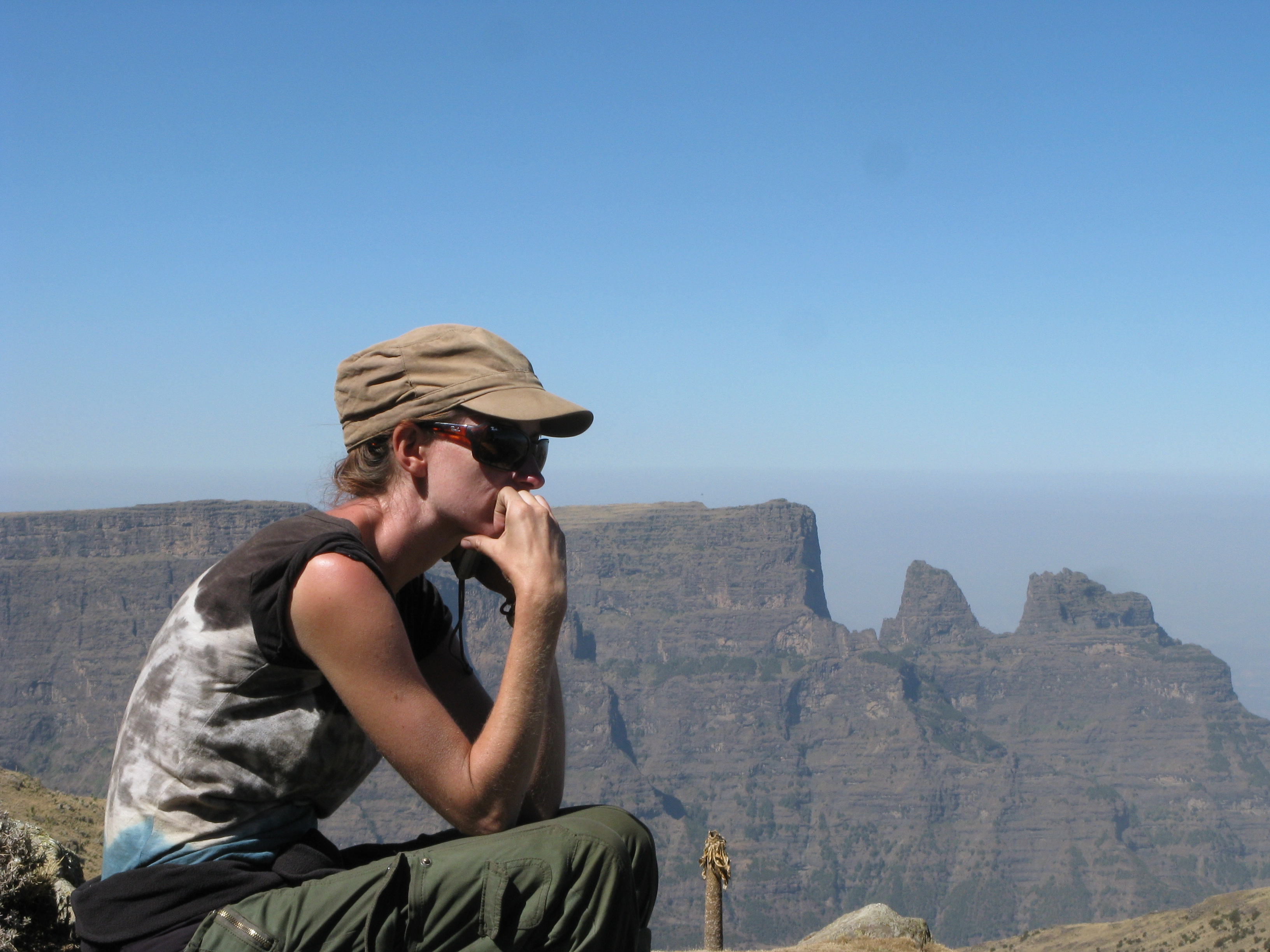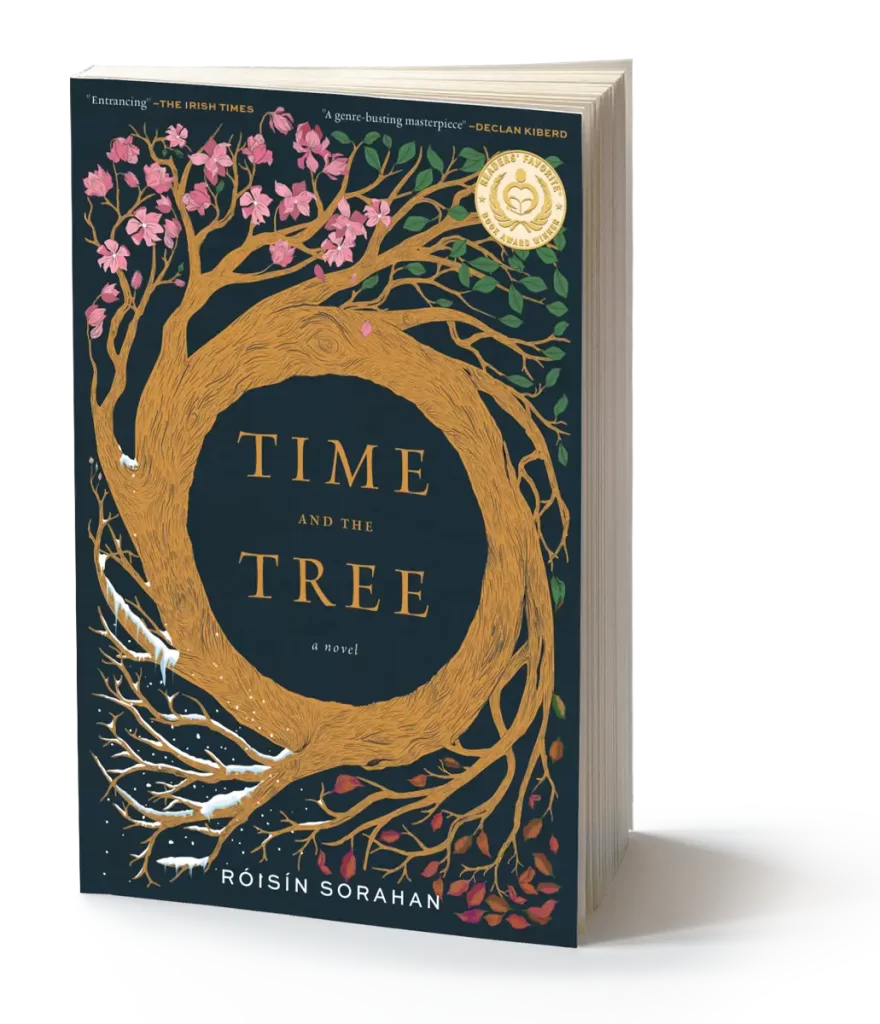

8 March 2022
Bookpleasures.com welcomes as our guest Róisín Sorahan whose recent book, Time and the
Tree has been published on September 6th, 2021.
Róisín Sorahan is an Irish author currently living in Vermont. She has published numerous stories about her adventures on the road, as well as life as an English teacher in China. Prior to becoming a nomad writer, she pursued a decade-long career in public relations. She holds a
Master of Letters from Trinity College Dublin, specializing in Samuel Beckett. Time and the Tree is her debut novel.
BEE: I know you have traveled quite a bit. How did your travel influence your writing for ‘Time and the Tree’?
RÓISÍN: I quit a good job to travel the world in pursuit of happiness. It seemed like a huge leap, at the time. Looking back, it would have been so much harder not to go.
We grow up, influenced by the world around us. It creates thought patterns and establishes routines, without us ever really considering them. It might feel like they just happen, without active choice. But we are complicit in the lives we lead.
On the road, I encountered people living in manifold ways. It became apparent that there is no absolute way to be, in the moment. Each must follow their instincts, with care and kindness, knowing that the choice is theirs to make.
Travel renewed my relationship with humanity. In countries where I didn’t speak the language, I had to rely on the kindness of strangers to accomplish even the simplest of tasks. I made so many crass, and unwitting, errors. And I was forgiven, time and again. It was humbling and rewarding and an exercise in patience and compassion, two important themes in my book.
It was also deeply frustrating at times, and I had to work hard to maintain my equilibrium. From the perspective of my writing, this was an important awareness and informed my exploration of happiness.
My experiences have helped me to live my life deliberately. I’m willing to take chances and embrace the fear of failure. I take responsibility for my decisions. Even the bad ones. And I reflect both inwardly, and on the world around me.
The first draft of Time and the Tree was written on the road. When my mind stopped making lists, I found I had time to think. The meandering mind is almost an anomaly in modern times. It has led me in many interesting directions.
BEE: You chose not to name “the boy” in the book although he is a main character, how did you decide to do so?
RÓISÍN: The Boy is an archetype. He is a central character, but he is ultimately a catalyst in the story. His role is to question, to seek, to be the site over which a battle is raged. And, finally, to transition from innocence to knowledge.
But, most importantly, in retaining him featureless, he is a vessel into which the reader can pour themselves.
In this way, the book is approached with the reader’s memories, aspirations, failures, and choices, so that it is created in their own image, according to their need and belief, every single time.
BEE: Which character do you love to hate? Which character is your favorite?
RÓISÍN: I don’t hate any of the characters. They are all complicated, and nuanced, and all have the capacity to be redeemed.
Time was the most fun to write. He made me laugh. I admire the Wanderer. She lives life with integrity and generosity. She’s deeply human in her questioning and in her flaws. Regardless of setbacks and false turnings, she gets back up and keeps going. She is a Warrior.
BEE: Tell us about your cover. Did you design it yourself?
RÓISÍN: My publisher produced the artwork for the cover. I really like it. It captures change simply and evocatively, and it speaks directly to the themes in my book. The colour palette also subtly conveys hope, and compassion, which are central tenets in Time and the Tree.
BEE: Which actor/actress would you like to see playing the boy from ‘Time and the Tree’?
RÓISÍN: I don’t have a face in mind. Somebody amorphous. I’d love to think that a casting director may tackle that quandary someday…
BEE: Please explain the message you tried to instill in readers with ‘Time and the Tree’.
RÓISÍN: Time and the Tree reminds us that we are responsible for the paths we travel and the choices we make. And it offers hope. It explores our capacity for fear and self-destruction. It also celebrates our ability to change, to fail, to fail better, to love, to immerse ourselves in the moment. Our capacity for happiness is also boundless. Time and the Tree confronts readers with the roles they play in their own lives. At a time when the world seems beyond our control, it is a pertinent and challenging novel.
BEE: What writers have you drawn inspiration from?
RÓISÍN: John McGahern captures the space between words. His dialogue is rich in all that’s not spoken. That They May Face The Rising Sun, one of my favorite books, exemplifies this. Kevin Barry’s linguistic mastery delights me. He spins words, as a magician spins plates. I look to Elizabeth Strout, Elena Ferrante and Rachel Cusk as guides to the interior landscape. Samuel Beckett is a life-long obsession. Never a word wasted. He pares language to the bones and articulates the silence after a scream. I also love children’s literature. The best in this genre is utterly subversive. Magic is another word for possibility. I just finished reading Kelly Barnhill’s magnificent book, The Girl Who Drank the Moon. I am dazzled.
BEE: Describe the room you are sitting in as though it was a scene in one of your books.
RÓISÍN: Even when I’m miles from the ocean, I see my small room in terms of light and horizons. That has little to do with the space, and more to do with the mind, and memories and the subtle shift of clouds across the old square-paned, sash window. An angled shaft, as it cuts across my desk, can draw the day in relief, making everything clearer, sharper. More hopeful. Then the clouds darken, and the room wishes me gone. There’s a storm coming.
BEE: If you could be somebody else for a day who would you choose and why?
RÓISÍN: I wondered about this one. Am I just wearing their skin, with my thoughts, reasoning, insecurities, and aspirations, intact; or do I become that person, with their memories, ego and foibles? If the former, then yes, please: undo an atrocity; paint a beautiful line; have a crowd chant back to me from the vantage of a wild Wembley stage; ski impossibly fast down an impossible slope;
see the stars up close… I can’t just pick one. But, if I must, perhaps that vantage over the earth to gain some perspective.
If the latter, then I’ll pass. I’m not sure I could bear that burden.
BEE: Do you currently have a new book in the works?
RÓISÍN: There’s always a project brewing. I’m currently researching the life, and imagining the inner world, of Suzanne Dechevaux-Dumesnil, Samuel Beckett’s greatest supporter and his life-long partner.
BEE: Thanks again and good luck with Time and the Tree!
RÓISÍN: Thanks for hosting me, Bee. The pleasure was mine.
© Róisín Sorahan